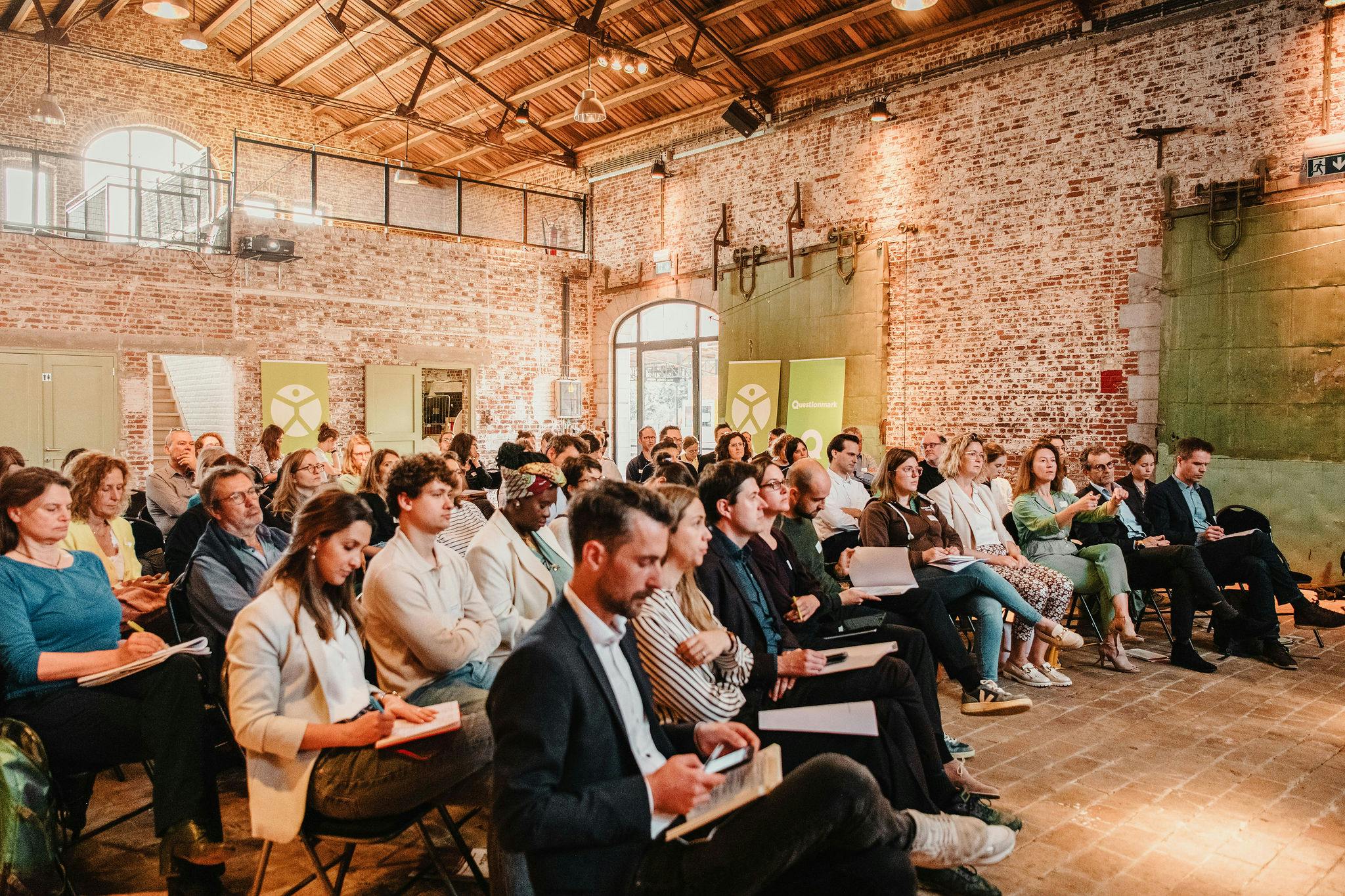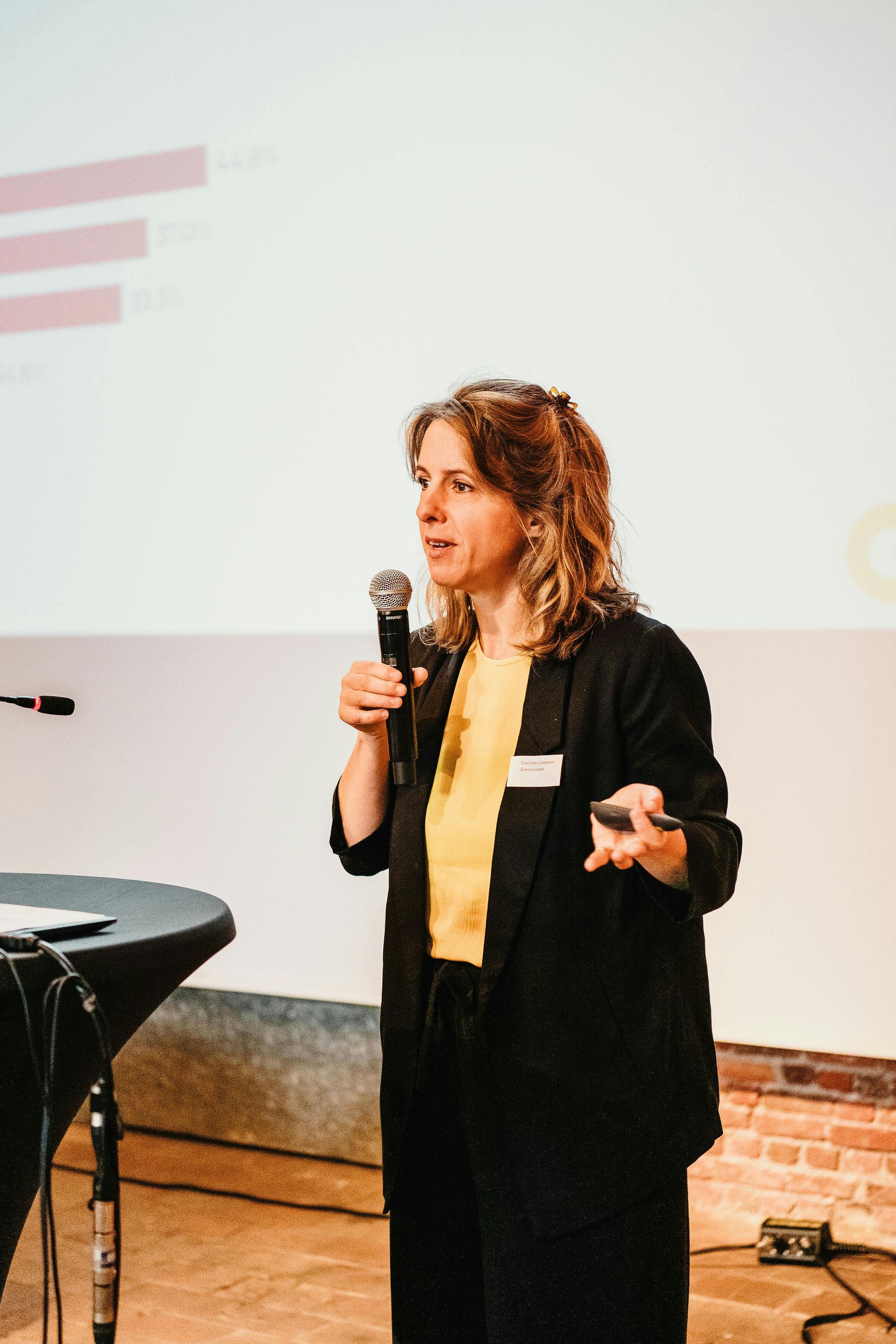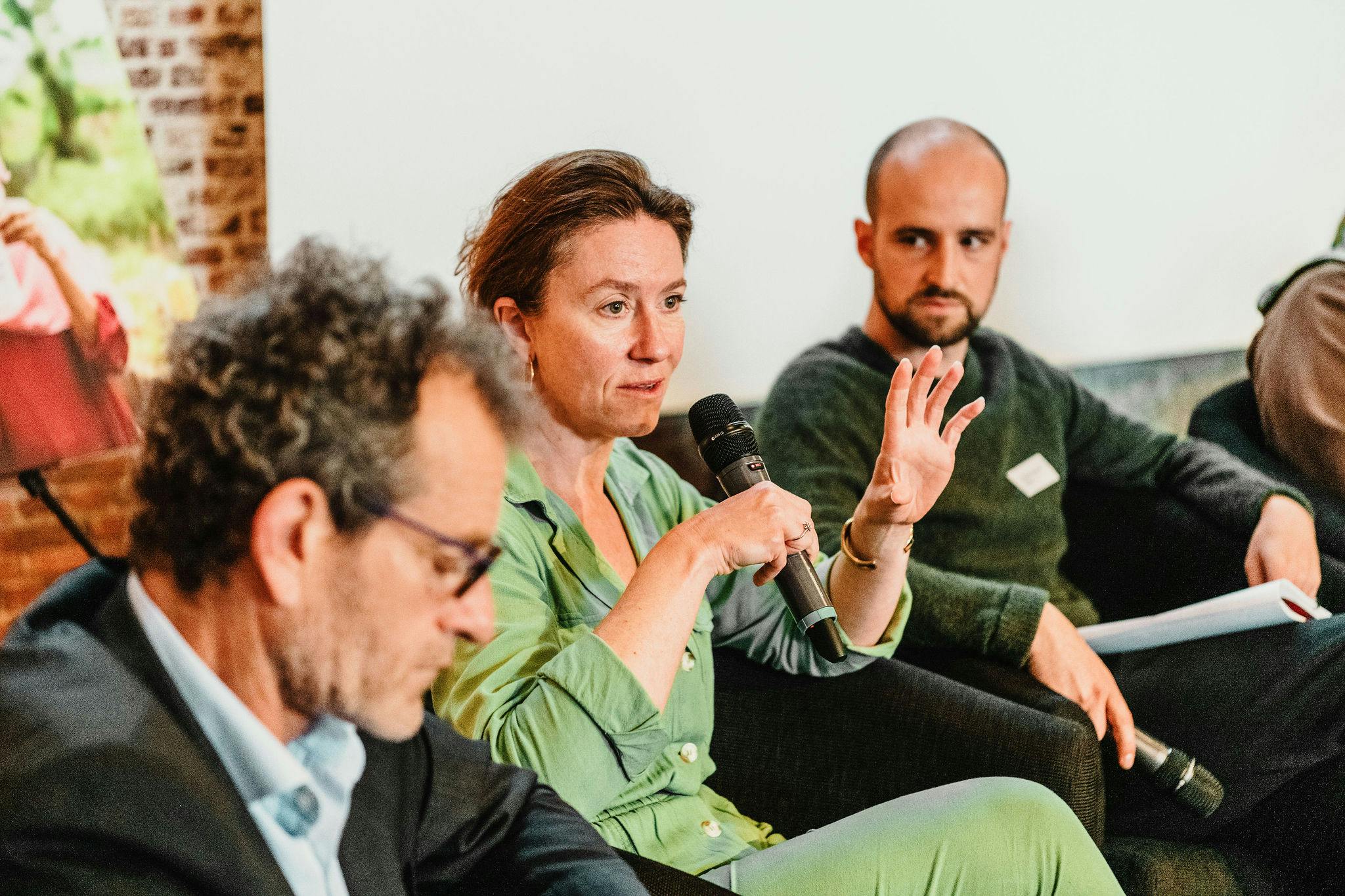
SuperDialogue Superlist Social Belgium
20 June, Brussels - Key figures in the Belgian food system came together on the day of the publication of Superlist Social in Belgium. Superlist Social Belgium is the first benchmark that compares human rights efforts of Belgian supermarkets. Representatives from supermarkets, government, politicians, civil society and scientists came to Brussel to discuss the findings and more importantly the next steps to take responsibility for human rights in the supply chains.
Superlist Social Belgium 2024
“Opportunity to reflect and draw lessons”
Juliane Schröder, head of CSR at Lidl BeLux, was pleased Lidl achieved the first place in the Superlist Social ranking, but expresses they will not lean back: “Superlist poses an opportunity to reflect and draw useful lessons”. According to Thibault Geerardyn, director at Rikolto, project learnings should be upscaled internally to make sustainable and fair sourcing the default. Jonathan Mathysen, from Oxfam België, expects “monster scores” in the next Superlist Social in two years time and urges supermarkets to take action in light of the upcoming Corporate Sustainability Due Diligence Directive .

From niche to mainstream
The value of bringing such a diverse group of stakeholders together was confirmed by Regis Meritan, Head of Agriculture at the European Commission. “SuperDialogue poses a unique opportunity to enter dialogue with retailers.” He gives praise for the work of the civil society organisations behind this Superlist and the pressure this places on all actors in the chain. Actions in some value chains, like bananas, are low hanging fruit. Now it is crucial that these measures expand from niche to mainstream, a message agreed upon and repeated on stage and in the audience during the discussions.

Race to the top
Superlist shares best practices that other supermarkets can learn from. According to Isabelle Colbrandt, head of corporate communication at Lidl Belgium and Luxembourg, they need to exchange best practices not only between Belgian supermarkets but also between countries. Superlist certainly inspires a race to the top within a country, but also an internal competition between countries.

Shifting away from the consumer narrative
Charlotte Linnebank, director at Questionmark, raised a discussion on the prevailing narrative about consumers needing to raise the demand for healthy, sustainable and fair food. It is a narrative the industry can use to their advantage and ignores the power structures in the system. A handful of supermarkets hold a key position between thousands of producers and millions of consumers. They determine the price of products through hard negotiations with suppliers. “Even if consumers are driven by the price of food , they never ask for deforestation or slavery. Each supermarket has the responsibility to look at their product range and make choices in this.” Isabelle confirms: “We don’t need to wait for the consumer, whenever possible, supermarkets should take unsustainable products off the shelf.”

Setting new targets
Superlist is conducted every two years on each theme. Isabelle emphasises they will be and have to be better. When asked if she dares to predict Lidl’s score for Superlist Social in two years time, Isabelle sets the target at 55 to 60 percent. An ambitious goal we hope to see become reality.
Superlist Social Belgium 2024Sign up to our newsletter
Would you like to be updated about our work and developments in the food system? Sign up to our newsletter.